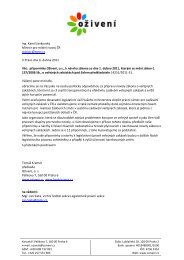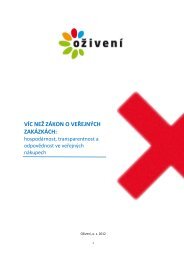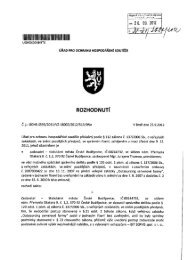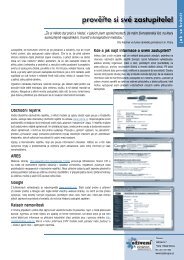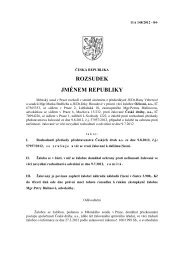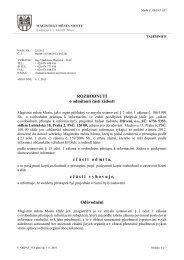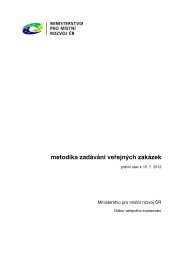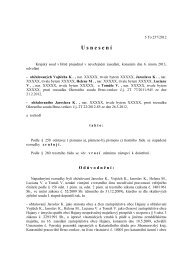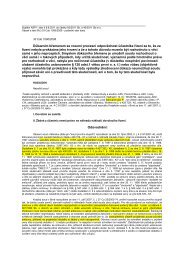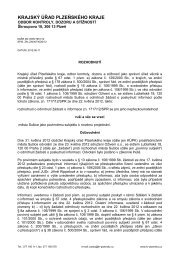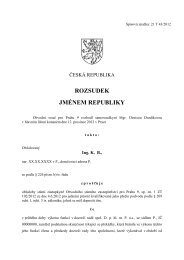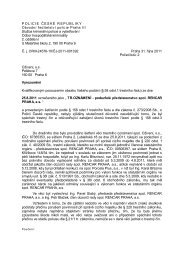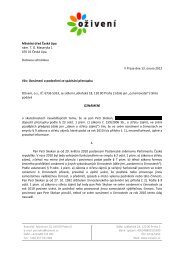Managing Conflict of Interest - Organisation for Economic Co ...
Managing Conflict of Interest - Organisation for Economic Co ...
Managing Conflict of Interest - Organisation for Economic Co ...
You also want an ePaper? Increase the reach of your titles
YUMPU automatically turns print PDFs into web optimized ePapers that Google loves.
Keynote Addresses xxiI, there<strong>for</strong>e, am convinced that effective management <strong>of</strong> conflict<strong>of</strong> interest is not only a matter <strong>of</strong> protecting public assets orupholding the rule <strong>of</strong> law, but also very much a precondition <strong>for</strong> astate—or indeed a government—to enjoy the trust and confidence<strong>of</strong> its citizens.The <strong>Organisation</strong> <strong>for</strong> <strong>Economic</strong> <strong>Co</strong>-operation and Development(OECD) has stated that a conflict <strong>of</strong> interest arises “when apublic <strong>of</strong>ficial has private-capacity interests which could improperlyinfluence the per<strong>for</strong>mance <strong>of</strong> his or her <strong>of</strong>ficial duties and responsibilities.”With this definition, a situation implying conflict <strong>of</strong> interestcan possibly emerge at the earliest stage, even be<strong>for</strong>e possibleinappropriate behavior has taken place. This is extremely important,as it requires public <strong>of</strong>ficials to avoid putting themselves in adangerous position or situation where conflict <strong>of</strong> interest can beeasily suspected.It is no secret that Indonesia’s history includes a long periodwhere conflicts <strong>of</strong> interest were neglected, and public duties,authorities, and assets were systematically used <strong>for</strong> private gain.These practices, applied during more than 30 years, have left astrong legacy, which we now must rectify. At this stage, much <strong>of</strong> thislegacy not only remains but is still perceived by many in Indonesiaas the norm. In Indonesia, conflict <strong>of</strong> interest is seen more as a conflictto be avoided by public <strong>of</strong>ficials but not necessarily as corruptpractice. I am, however, pleased that provisions <strong>for</strong> avoiding conflict<strong>of</strong> interest as an ethical norm are already present in many Indonesianlaws such as the Anti-<strong>Co</strong>rruption Law, the Law on KPK, the CivilService Law, the Public Prosecution Act, the Law on the Supreme<strong>Co</strong>urt, the Capital Market Law, and others.There is yet a definition <strong>of</strong> the concept common to all existinglaws. I also admit that there is a lack <strong>of</strong> en<strong>for</strong>cement mechanisms inthe laws, partly explained by the vague definitions. This, I believe,is the challenge. I do strongly believe that the time is there<strong>for</strong>e ripeto both clarify the concept <strong>of</strong> conflict <strong>of</strong> interest in Indonesia andimprove our methods and mechanisms <strong>for</strong> protecting our systemagainst conflict <strong>of</strong> interest. The concept must be defined in relevantlegislation in a coherent way, and feasible protection and en<strong>for</strong>cementmechanisms must be designed to clarify borderlines andaccountabilities. The concept must be developed through a processinvolving government agencies, many stakeholders, and eventuallythe Parliament. This is truly a difficult and challenging process,ADB/OECD Anti-<strong>Co</strong>rruption Initiative <strong>for</strong> Asia and the Pacific



